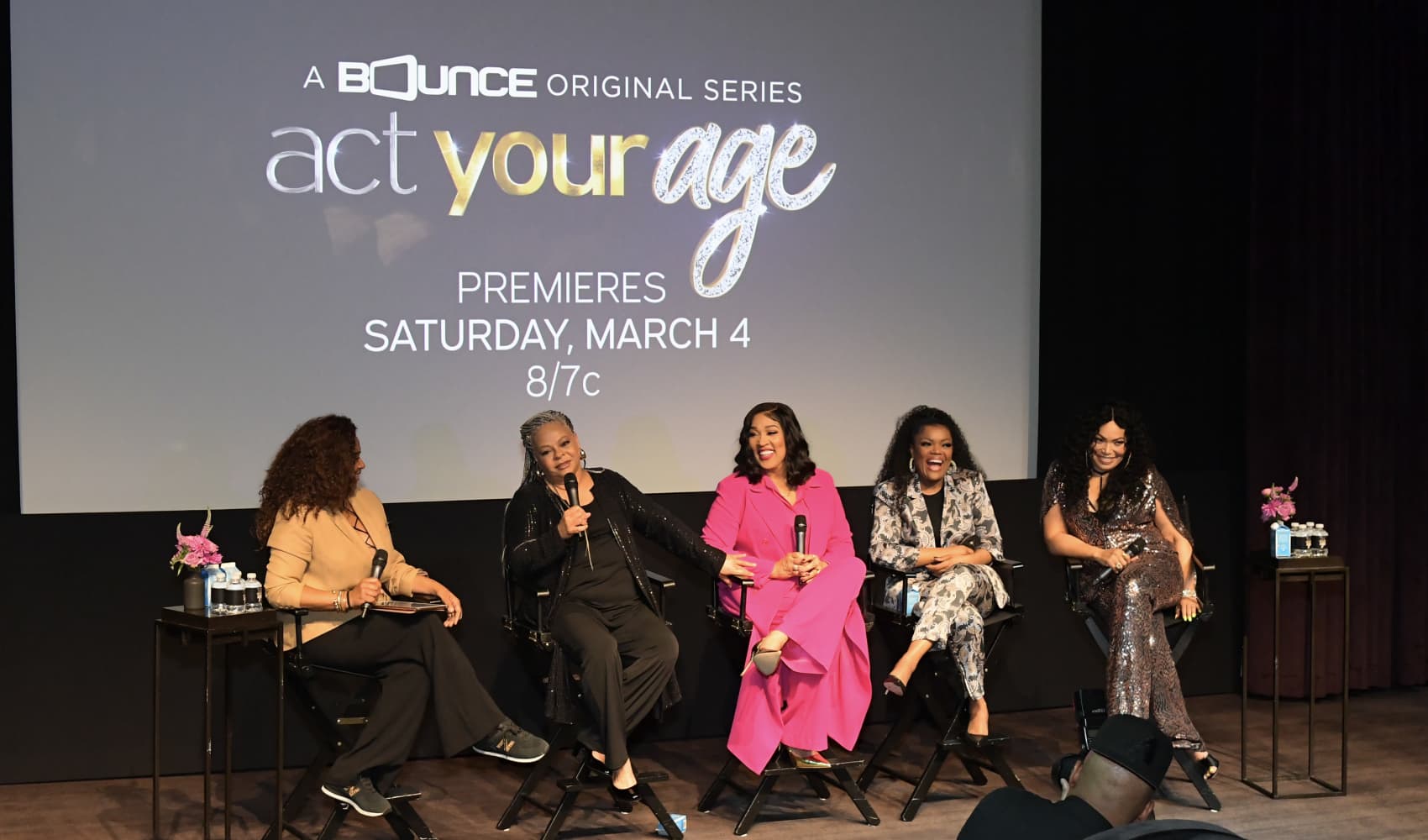
Rachel Rodgers hit a major entrepreneurial milestone in what would seem like the most unlikely of conditions. In the month of June 2020, she brought in $1 million in revenue through her business coaching and membership community, Hello Seven.
Her achievement comes at a time when a global pandemic has left tens of millions of Americans unemployed, and amid a national reckoning of racism and police violence that have led to protests around the world. But even in the most stable of economies, crossing the million-dollar mark would be a hard-won feat for a Black female entrepreneur, despite the fact that women are the driving force behind new businesses in America.
According to a report from American Express, women-owned businesses represented 42% of all businesses, nearly 13 million, in 2019. Women of color in particular are driving the boost, accounting for half of all women-owned businesses last year, and Black women make up the fastest-growing segment of new entrepreneurs.
While women are closing the gap in starting their own businesses, a host of systemic barriers means that many female entrepreneurs don't have access to investment to scale their operations and aren't able to generate as much revenue through their products and services. Roughly 2% of women-owned businesses bring in $1 million in revenue in a given year.
Rodgers, 38, whose Hello Seven is a nod to helping business owners reach that seven-figure status, is on her way to changing that dismal statistic, starting with herself.
'There's no replacement for representation'
A trained intellectual property attorney, Rodgers graduated from law school in 2009 and started her own practice in the early 2010s, when saw many new entrepreneurs coming out of the blogging boom who needed legal support but couldn't afford to hire a lawyer. So she launched Small Business Bodyguard, an online guide with things like contract templates that would help freelancers DIY the legal documents they needed to protect their intellectual property and grow their operations.
Money Report
As Rodgers worked with new clients, many women of color and business owners like herself, she realized the side conversations she had about running a successful business were more meaningful than drawing up legal documents. "I'd charge them to draw up contracts and register trademarks, meanwhile I'd give them business advice for free," Rodgers explains. Then came a light-bulb moment: "I thought I could do that the other way around, and give business advice naturally by coaching clients who were legal clients."
Over two years, Rodgers transitioned from her law practice to move full-time into business coaching. By 2017, Hello Seven launched with the mission to help women entrepreneurs scale their business from $100,000 to a million and more.
"I wanted to teach women how to earn money without hustling all the time," Rodgers says. As a mother of four, she wanted to help other women gain financial stability without leaning into a hustle culture of overworking, oftentimes glorified in the business community.
Not only did Rodgers want to help women earn more, she felt it was important to be a resource to other Black women entrepreneurs specifically.
"Black women are starting businesses in droves but are not seeing themselves represented in business books, business coaching, or media that teaches business," she says. "There are maybe some affluent White women, but that's about it. There's a huge untapped market who need to see themselves represented at higher levels to see it's tangible. There's no replacement for representation."
A million-dollar example of how anti-racism pays off
Hello Seven has three main ways it brings in revenue: a business coaching community with a $295 monthly or $2,995 annual fee, which currently has more than 1,200 members; a nine-month incubator program with a $10,000 price tag; and a VIP package for more advanced organizations who need help overhauling their business model entirely.
In June, Rodgers brought in $1 million in revenue within a single month for the first time she's been in business.
"Having a million-dollar revenue month is something I am incredibly proud of," Rodgers says. "Countless Black women shared on social media and with me personally that this win felt like a win for all of us. It's a testament to what Black women can accomplish and a message to venture capitalists, investors, banks and other gatekeepers that they should bet on Black women."
"I think it's no coincidence that I wound up having my biggest revenue month during the same time that I loudly and proudly stood up for what I believe in," she adds. In early June, Rodgers posted a video to Instagram expressing her dissatisfaction with how other members of the small-business community, particularly White founders, responded to the killing of George Floyd and resulting global protests.
She called out White business leaders displaying performative allyship by expressing sadness over the situation without taking action to support Black business owners, and in some cases discouraging dialogue about racism in America and the business community.
In response, Rodgers channeled her frustration and, with the help of friend and diversity, equity and inclusion expert Ericka Hines, organized a small-business town hall. They introduced their newly launched Anti-Racist Small Business Pledge, which lays out five actionable items that small-business owners can take to promote racial equity within their operations, including engaging in anti-racist education, investing a portion of monthly budgets to the Black community, and expressing a long-term commitment to becoming an anti-racist organization.
About 2,500 small businesses have signed the pledge so far, and Rodgers hopes to have 10,000 participants by the end of the year. Organizers will conduct quarterly check-ins to see what kind of progress businesses have made, and Rodgers hopes to have a follow-up town hall to share updates by next June.
"Being vocal about what I stand for at the same time being as profitable as ever, I don't think that's a coincidence," Rodgers says. "I wanted to show that building a diverse and equitable company is building a more profitable company."
Rodgers will distribute profits from her million-dollar month back to her team of 14, the majority of whom are women of color.
Helping build small businesses today, global corporations tomorrow
Rodgers's hope is that, by increasing the number of Black- and women-owned businesses in America, a shift in the types of companies that get funding to become national and global powerhouses will follow.
For example, a recent study from Crunchbase found that in 2019, for every $100 invested by venture capital firms, just $3 went to companies founded by women. Black women specifically receive less than 1% of the billions in venture capital poured into start-ups every year.
"Most people don't acknowledge that," Rodgers says. "People think of success as you have to pull yourself up by your bootstraps. Yes, that's part of it, but there are also systemic issues of racism and sexism at play. All kinds of discrimination is built into our culture, which makes it harder for entrepreneurs from a marginalized community to win at a bigger level. That's why only 2% of women entrepreneurs hit seven figures.
"To me, it's important we as women of color build wealth," Rodgers continues. "With Black wealth, we can become the VCs, the ones with economic power to invest in ourselves."
According to research from the Organization for Economic Cooperation and Development, women's economic participation and ownership of financial assets is linked to faster economic development, reduced poverty rates and improvements to children's nutrition, health and school attendance. Women also reinvest more of their income back to their families and communities — roughly 90%, compared with 35% for men.
"Here is what I know to be true," Rodgers says: "Black wealth matters. When more money is in the hands of Black women, specifically, the world will be a better place."
Check out: The best credit cards of 2021 could earn you over $1,000 in 5 years
Don't miss:
- She created a platform to mobilize consumers to buy Black. In 3 days they spent over half a million dollars
- The NYSE's youngest female trader on diversity in finance: Employers need 'to stop making plans and just do it'
- Companies are speaking out against racism, but here's what it really looks like to lead an anti-racist organization






